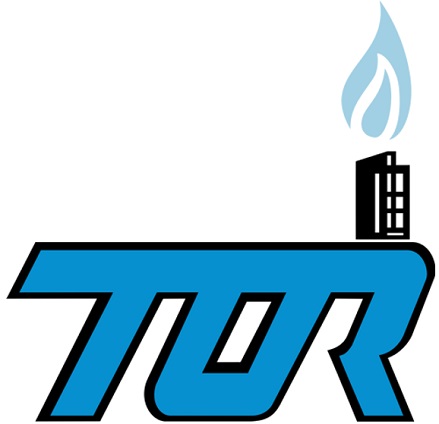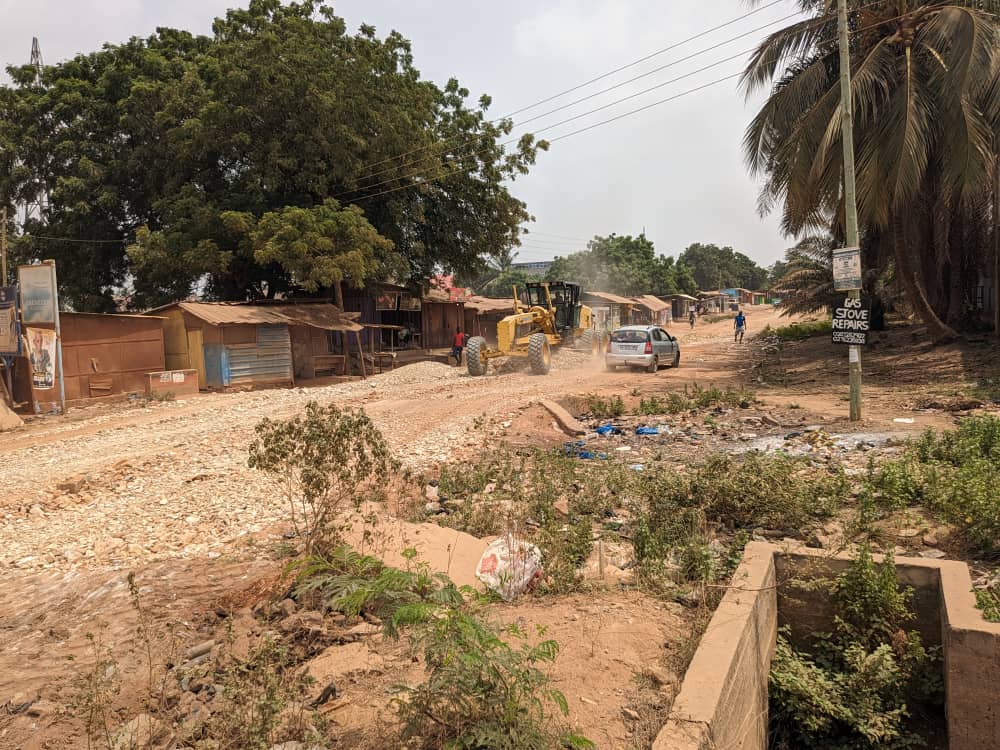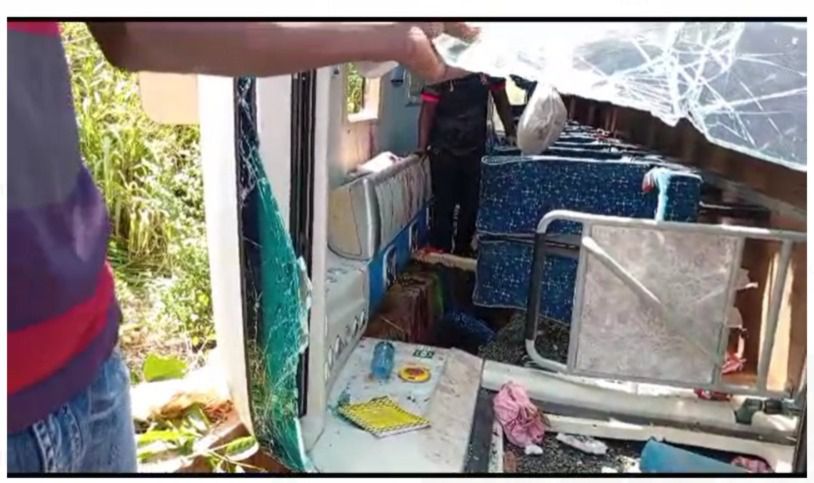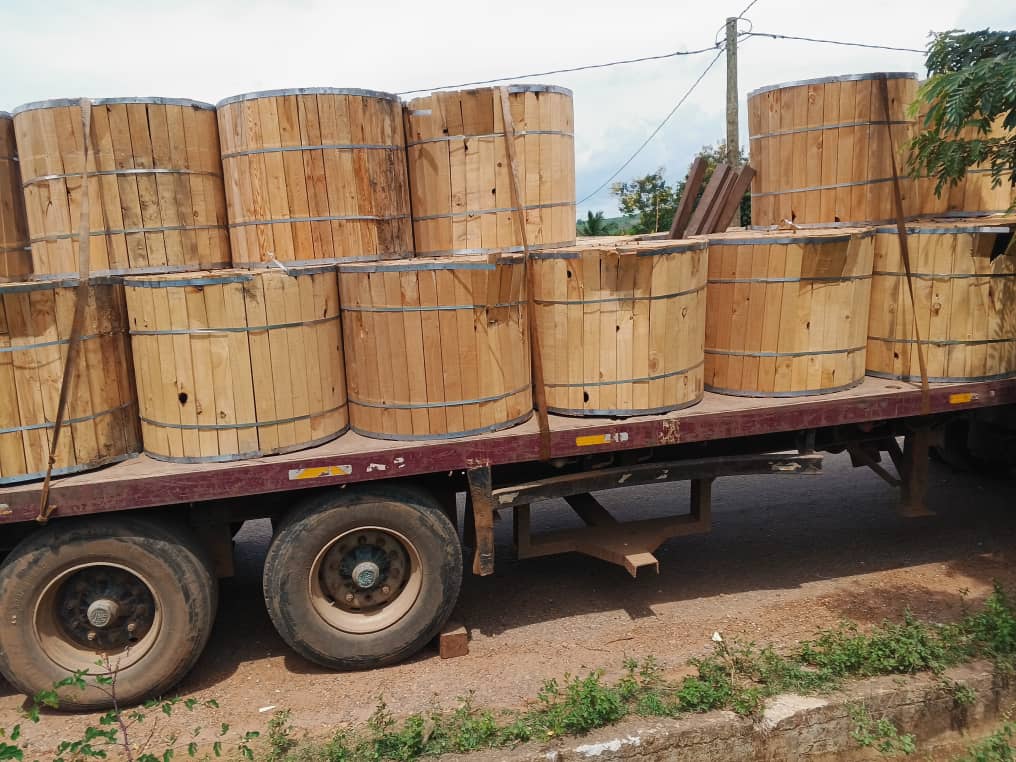
In many urban and peri-urban areas, a concerning trend has emerged: individuals are constructing lavish homes, yet the access roads leading to many of the houses are in disrepair. This paradox highlights a significant societal issue: our over reliance on the government for infrastructure development. This dependence often prevents us from recognizing our collective responsibilities in fostering strong communities. We the citizens, chiefs, and local leaders need to evaluate our approach to development and actively work towards improving our environments.
As an indisputable fact, the disparity between personal wealth and public neglect is striking.
Many homeowners take great pride in their residences. They invest heavily in decor, imported furnishings, and advanced security systems. However, the roads leading to these properties are often neglected and can become nearly impassable during the rainy season. This situation raises an important question: if individuals can afford to build lavish homes, why can’t they allocate a portion of their wealth to improve shared infrastructure and enhance their communities? The government has a responsibility to prioritize public infrastructure, but community members must also recognize their role in development.
The Role of Chiefs and Assembly Members
Traditional leaders and local government officials play vital roles in community development. Chiefs serve as guardians of the land and can significantly inspire collective action. Assembly members act as crucial Intermediaries between the community and the government. They also play a vital role in advocating for necessary improvements and resources. Unfortunately, in many communities, these leaders either lack initiative or struggle to motivate residents to take action.
Historically, Ghanaian communities thrived on mutual assistance. Before the government took full control of development initiatives, communities would self-organize to construct roads, build schools, and establish health facilities. However, this spirit of cooperation seems to have diminished, as individuals increasingly prioritize personal interests and expect the government to take care of all developmental needs.
Given the current economic environment and the government’s limited resources, it is unrealistic to anticipate that all developmental needs can be met solely by the state. Therefore, chiefs and assembly members should lead efforts to revive this communal spirit. They need to organize community meetings, establish local development committees, and encourage contributions from residents to address key infrastructural issues.
Property Rates and Government Obligation
A common viewpoint among property owners is that since they pay property rates, they expect the government to allocate these funds for their neighbourhood road constructions. While there is some validity to this argument, it is essential to consider a broader perspective.
What is the Property Rate Amount?
Property rates in Ghana tend to be relatively low compared to the expenses associated with constructing and maintaining roads. Many homeowners pay only a few hundred cedis each year, the revenue generated from property rates is often insufficient to finance significant infrastructure projects in any given locality.
How Often Is It Paid?
Many property owners either delay their payments or evade them for extended periods. This inconsistency hampers local assembly budgets for road construction.
Can Property Rates Alone Fund Road Construction?
The cost of constructing just one kilometre of paved road can run into millions of cedis. Typically, the revenue from property rates is not enough to cover these expenses. Moreover, local government funds are allocated across various development sectors, including education, health, and sanitation. Therefore, expecting property rates alone to finance road repairs is impractical.
Innovative Community-Driven Solutions
Instead of waiting indefinitely for government action, communities should start thinking creatively. There are practical ways for residents to come together to improve their neighbourhoods.
- Contributions for Road Development: Homeowners can collaborate to fund the the construction of community-driven local roads, even if the government doesn’t address all issues immediately. Regular maintenance can greatly improve road conditions without the need for immediate asphalt paving. If each homeowner contributes a reasonable amount, hiring contractors for essential improvements becomesfeasible.
- Public-Private Partnerships:We can work together with local businesses to sponsor road projects. Many companies are willing to invest in community initiatives if they are well-organized. Chiefs and assembly members can reach out to these businesses to seek support for infrastructure projects as part of their corporate social responsibility efforts.
- Utilization of Community Labour: If substantial financial contributions are not possible, we can volunteer a few days each year for collective task Residents can take initiative in improving their local roads by engaging in activities such as filling potholes, clearing drainage systems, and levelling rough road surfaces.
- Advocating for Government Support: In addition to community efforts, residents should reach out to their assembly members and local government officials to advocate for support and resources for road improvements. A proactive and organized community is more likely to gain government assistance than one that simply complains without taking any action.
- Leveraging Local Expertise: Many communities have engineers, contractors, and skilled tradespeople who can provide professional advice or services at reduced rates. Instead of relying solely on external contractors, we should utilize the expertise available within our community.
- Changing Our Mind-set: The biggest barrier to community-driven development is the prevailing mind-setof we the citizens. Many of us perceive that the government is solely responsible for providing all services. This perception needs to change if we want our communities to thrive. If we admire well-structured cities in other countries and aspire to similar living conditions, we must be willing to contribute to that effort. The government cannot transform every neighbourhood overnight, but combined efforts can lead to significant changes.
We must see ourselves as active stakeholders in development, rather than just recipients of government governments initiatives.
Let’s stop waiting and begin making a difference!
BY: Wisdom Klu
The post Beyond Property Rates: How to Fix Our Roads Without Waiting for the Government appeared first on The Ghanaian Chronicle.
Read Full Story



















Facebook
Twitter
Pinterest
Instagram
Google+
YouTube
LinkedIn
RSS